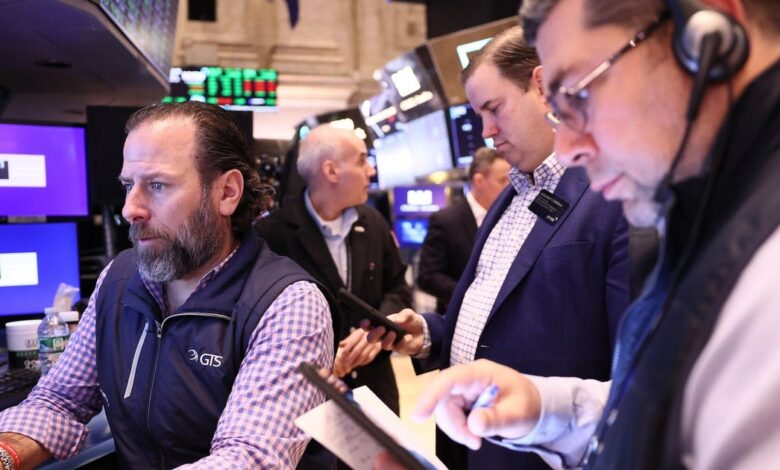S&P 500 marks its worst quarter since 2022 amid tariff and inflation fears

Stocks experienced a rollercoaster ride on Monday as investors braced for President Trump’s announcement of more tariffs on April 2. The market initially saw a dip in early trading, only to recover later in the day. Despite the gains, the market still struggled to offset the significant losses recorded earlier in the month, with the S&P 500 marking its worst quarterly performance since 2022.
President Trump has dubbed April 2 as "Liberation Day," emphasizing that the new reciprocal tariffs will help restore trade balances between the U.S. and other nations. However, investors remain cautious about the impact of these new tariffs, as they are import fees that are typically passed on to U.S. consumers in the form of higher prices. This has led to a decline in consumer confidence, reaching a 12-year low as more Americans express concerns about tariffs and the potential for increased inflation.
The first quarter of 2025 saw the S&P 500 lose 4.6%, marking its worst quarter in two-and-a-half years. Similarly, the Nasdaq composite ended the quarter with a 10.4% decline, while the Dow Jones Industrial Average shed 2.2% over the same period.
The uncertainty surrounding President Trump’s tariff policies has become a norm in the U.S. stock market. Investors are anxious about a possible combination of worsening inflation and a slowing economy, as households are reluctant to spend amid the escalating trade war initiated by the President.
According to Bob Schwartz, a senior economist at Oxford Economics, consumers are increasingly concerned about higher inflation and deteriorating economic prospects, leading to a decline in confidence levels. The specifics of President Trump’s upcoming round of import taxes are still unclear, but it is expected that he will announce plans for reciprocal tariffs to match import duties imposed on U.S. goods and services by other countries.
On Monday, the Dow Jones Industrial Average rose 418 points, or 1%, to 42,002, while the S&P 500 closed 0.6% higher. The Nasdaq, however, slipped about 0.1%.
In the midst of these market fluctuations, Tesla continues to face challenges with a 1.7% slide on Monday. The electric car company, led by CEO Elon Musk, has seen a 39% decline since President Trump took office. This downward trend is attributed to Musk’s oversight of the new Department of Government Efficiency, which is cutting government spending.
Additionally, Tesla’s sales in Europe and the U.S. have been impacted by Musk’s political stance, leading to protests and vandalism directed at the company’s showrooms and vehicles. On a different note, Apple shares were down slightly after France’s antitrust watchdog fined the tech giant $162 million for alleged competition law violations related to a privacy feature rollout.
In the mortgage industry, Rocket’s shares fell 3.5% following the announcement of its acquisition of competitor Mr. Cooper in a deal valued at $9.4 billion. On the other hand, Mr. Cooper’s shares surged more than 26% in response to the news.
The price of gold hit a record high before retreating to $3,149 an ounce as investors sought traditional safe havens amidst market uncertainties.
As the market continues to navigate through these challenges, it remains to be seen how President Trump’s tariff policies will impact the U.S. economy and consumer confidence in the coming months. Stay tuned for further updates on the evolving market trends.
Contributors: The Associated Press
Author: Aimee Picchi, Associate Managing Editor for CBS MoneyWatch





